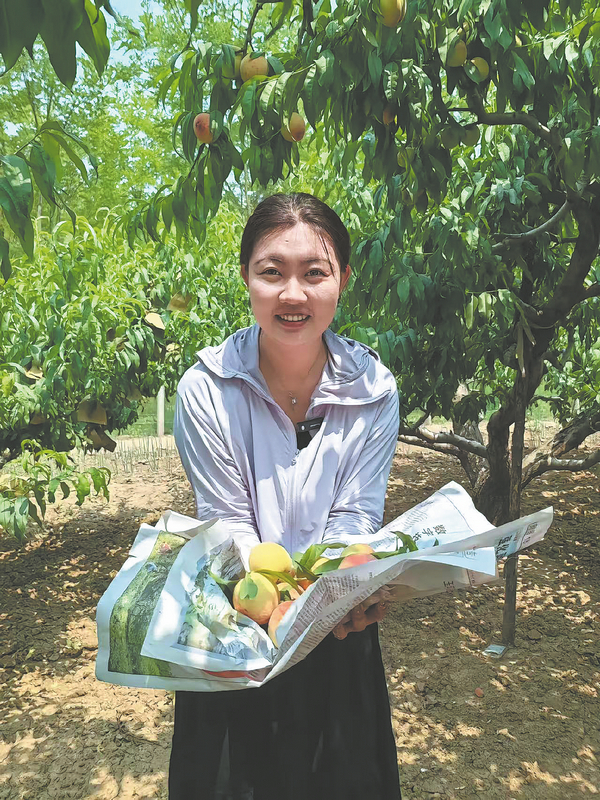Innovation fuels rural growth


Just before the Spring Festival of 2025, residents of Zhaoquan village, located in Shuangkou county within Tianjin's Beichen district, received supplies like rice, flour, cooking oil, and other daily necessities.
These gifts were the result of the village's collective economic development over the past year. Behind this progress is the dedicated effort of the village Party branch, led by 30-year-old Secretary Zhao Rui.
After graduating from Tianjin Medical University in 2017, Zhao returned to her hometown in Shuangkou town, joining a group of young leaders driving rural revitalization in the region.
"Having grown up in the countryside, this land is my roots. I want to help it move toward a brighter future," Zhao said.
In 2021, Zhao's outstanding abilities earned her the position of Party secretary and director of the Zhaoquan village committee.
Today, the village's Party branch has nine members, with four under 30 years old. This youthful team has brought fresh and innovative ideas to drive the prosperity of the village.
In May 2024, encouraged by the local district government, Zhao and her colleagues launched video accounts on popular social media platforms like Douyin (the Chinese version of TikTok) and Kuaishou. Through these platforms, which resonate strongly with the younger generation, they aim to explore new opportunities for generating income and advancing the village's development.
One of Zhao's video series, titled "100 Simple Acts for the Villagers", showcases her efforts to address the daily challenges and needs of the local community. These initiatives include providing free haircuts, delivering disease prevention lectures, and teaching elderly villagers how to use smartphones.
"Many young people from the village have moved to cities for work, leaving behind mostly elderly residents," Zhao explained. "Now, they can make video calls."
Digital transformation
These videos have not only brought a fresh perspective to the villagers' lives but, more importantly, have put Zhaoquan on the map, attracting investment.
One such project is the establishment of a forest farm in the village, where visitors can enjoy family-friendly outdoor activities. This project has boosted the village's revenue and created job opportunities for its residents.
Zhao's social media initiatives have also helped expand the market for the village's agricultural products.
Last September, local farmers struggled to sell their grape harvest. In response, Zhao created a series of videos documenting the grape cultivation and harvesting process, highlighting the fruit's sweet-and-sour flavor and juicy texture. Soon after these posts went live, grape wholesalers contacted Zhao, leading to the successful sale of approximately 35,000 kilograms of grapes.
Zhao has also extended her efforts to neighboring areas, using her videos to promote their agricultural products and scenic spots.
Last June, a young woman from a nearby village reached out to Zhao's team. Her family's apricot harvest was ready, but they faced a narrow selling window. Unfortunately, her mother was bedridden due to illness, and they didn't have an online platform to attract potential buyers.
Zhao and her team responded quickly, visiting the family that same day. They produced a video for the apricots, which helped the family sell their surplus and eased their burden.
"Social media is a powerful tool for bringing attention to these small villages and driving economic growth in rural areas," Zhao said.
In addition to creating short videos, Zhao and her colleagues have ventured into livestreaming e-commerce as a new way to support the village's development.
"I'm just an ordinary person from a farming background," Zhao explained. "Although my influence is limited, I want to use my efforts to bring real benefits to the people in my hometown."




































